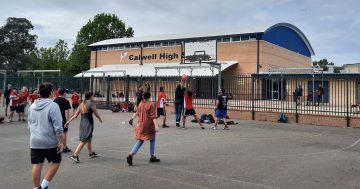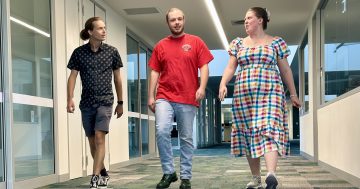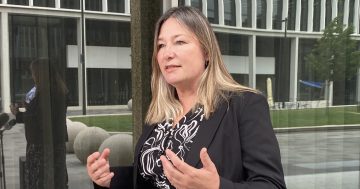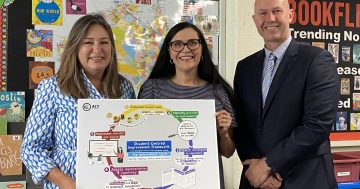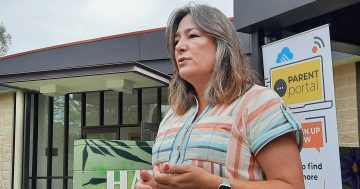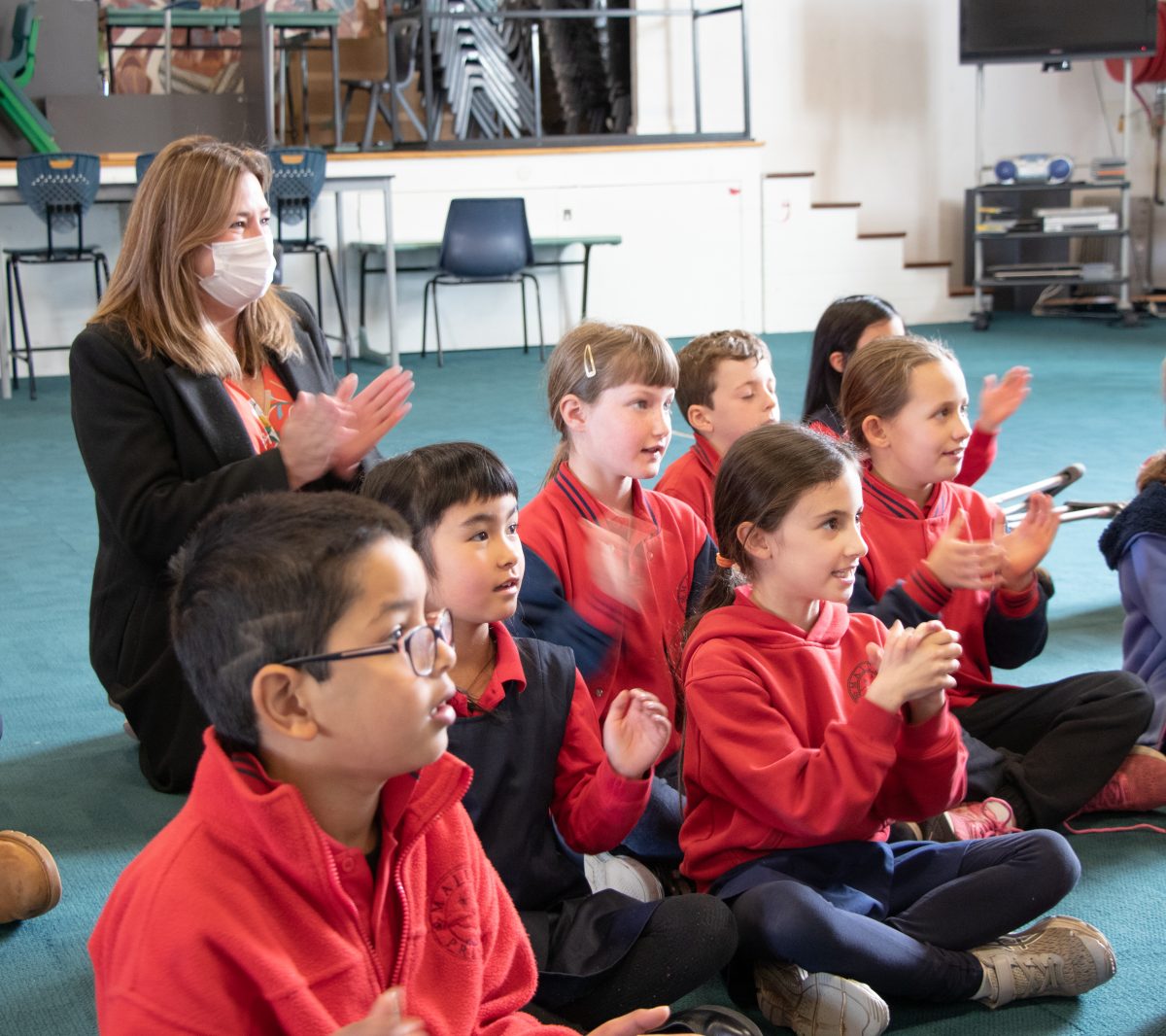
Minister for Education Yvette Berry at Majura Primary School: “We don’t accept violence against any of our schools’ teaching professionals or school principals.” Photo: Lottie Twyford.
Would you sign up for a job where more than three-quarters of your colleagues have reported experiencing physical violence or threats of violence?
A new report has shown that’s what ACT principals face each time they arrive at work.
The Australian Catholic University’s Australian Principal Occupational Health, Safety and Wellbeing Survey 2022 found reports of physical violence have increased to their highest figure nationally since the survey commenced in 2011.
Filled out by almost 2500 school leaders nationwide, it also reported that one-in-two principals are at risk of serious mental health concerns, including burnout and stress.
ACT Principals Association (ACTPA) co-president Andy Mison isn’t surprised.
“It’s a national issue, not just an ACT issue … there’s over a decade of data there and the trends have been consistent,” he said.
“Stress and burnout are increasing, there’s expanding curriculum, increasing expectations from the community about what schools will do, higher levels of anxiety in our students, mental health issues, economic issues, students with complex diagnoses.
“Schools are really the frontline.”
The ACT reported the highest levels of physical violence and threats of violence from students at 80.5 per cent, while 39 per cent of the Territory’s principals experienced threats or violence from parents.
“There are increased expectations on schools … that schools will provide highly personal experiences for every student,” Mr Mison said.
“We aspire for that, but that requires a different conversation on resourcing.
“The solutions aren’t quick fixes. We need a national conversation over the needs and expectations on our schools.”
The ACT’s principals also triggered the most ‘red flag’ email alerts at 58.5 per cent, which are sent when school leaders are identified to be at risk of serious mental health concerns.
Report co-lead investigator Professor Herb Marsh said it provided a “sobering look” at the mental health of our school leaders.
“They are weighed down by the compounding crunch of unsustainable workloads, chronic teacher shortages and concern about mental health issues among staff and students,” he said.
“The wellbeing of our school leaders is at a tipping point … we may see a mass exodus from the profession, and the implication for Australian education would be devastating.”
Education Minister Yvette Berry said she felt there had been an increase in the expectations on our schools across the community, but violent outbursts were not the answer.
“You could make a lot of assumptions … and [this] might actually be because we have a highly educated community and perhaps higher expectations on our schools than everywhere else in the country,” she said.
“We don’t accept violence against any of our schools’ teaching professionals or school principals who are doing a great job, and at the end of the day, are looking out for the best interests of our young people and students.”
She said the government would continue to work with the ACTPA to find solutions, including the continued rollout of the Positive Behaviours for Learning Framework, but said the community also needed to get on board.
“We need to bring the community outside of our school gates along with that journey,” Ms Berry said.
Mr Mison said while there has been an increasing burden placed on schools to provide not just education but social support as well, the ACT’s higher results could also be down to the culture of reporting.
“The data is high, but it’s in part due to the excellent reporting culture. Our Education Directorate has been proactive about putting measures in place to make sure we are reporting so it can provide support,” he said.
Mr Mison said while the data just focused on principals, it was indicative of what all educators were facing.
He stressed everyone needed to come together to discuss how to stop the levels of violence, stress, burnout and mental health issues to ensure the best futures for our children.
“We are often the frontline support for families in difficult situations,” Mr Mison said.
“The fundamental business of schools hasn’t changed. We’re here to support the growth of humans … and how they operate in the world.
“It’s probably not a popular view, but we need to have a conversation about work/life balance, what is the job of the school, what is the job of the parents, and how do we share the responsibility to make sure everyone is happy and healthy.”
He suggested strengthening public schools as community centres to provide more support to families could be a solution.
“For example, how can we bring more allied professionals to help so educators can focus on what they love doing, which is developing happy and successful human beings?” Mr Mison said.
“It’s actually about politicians from across the country, education bureaucrats and educators themselves working together on what the solutions are.
“These are our kids, and we’ve all got to take responsibility for them.”













